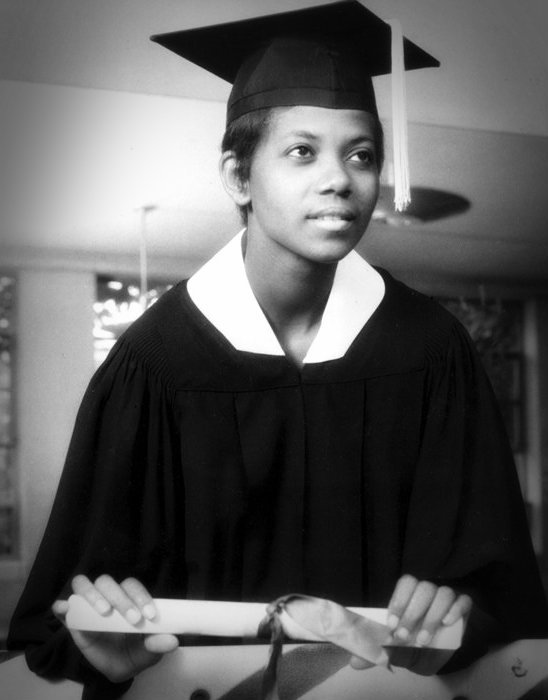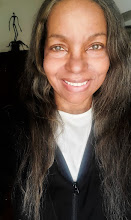At the 1960 Rome Olympics, Wilma Rudolph became the first U.S. female in Olympic history to win three gold medals.
 |
| Wilma Rudolph Fraternal Order of Eagles Award |
Wilma Rudolph
In 1960, Wilma Rudolph of Tennessee State University made national headlines on radio, television and mainstream newspapers when she became the first U.S. female to win three gold medals in track and field at the 1960 Rome Olympics.
With all that gold being earned at the 2016 Summer Olympics in Rio, we should remember the first African Americans to win Olympic gold medals, lest we forget that in 1960 Wilma Rudolph fought Jim Crow and helped lay the groundwork for black gold medalists in the 2016 Summer Olympic in Rio.
Wilma Rudolph had Polio
 Wilma Rudolph |
Wilma Rudolph was a four-and-a-half-pound premature baby born in 1940 in Clarksville, Tennessee. She did not go to traditional school for one year, but was home schooled due to infantile paralysis, caused by the polio virus, which she contracted at age four. Still a sickly child at age seven, she was enrolled into a segregated and underfunded Tennessee school by her parents who did not have the best jobs or health insurance. By age 12, Rudolph's treatments at the Fisk University Medical College Hospital in Nashville, Tennessee, had straightened her twisted leg and given her the normal physical health she had never enjoyed before.
Wilma Rudolph - College Graduate 1963
Wilma Rudolph
had overcome childhood polio and fought her way to good health by the time she reached her teens. Her athletic abilities made her a high school basketball star, garnered for her attention from college coaches, gained her a college education and eventually placed her in the history books alongside Rosa Parks, Martin Luther King and other civil rights activists.
Wilma Rudolph was a track and field athlete and an activist for civil rights. During the time of her victories, the United States was in the midst of a bloody civil conflict on the streets of southern cities. Politicians were grappling with the notion of granting African Americans civil rights, voting rights and civil justice. In the light of this national turmoil, all African American achievements were being sought by the Civil Rights Movement to further the cause of social change.
Just as television was beginning to become the main bearer of news and celebrity, Rudolph's track victories helped her to pick up the civil rights struggle against Jim Crow when she got the chance to run track in college. She became an important vehicle for the Civil Rights Movement while she getting college education, which she would use later to influence a new generation of track stars and school students. The most important vehicle out of poverty and low-paying jobs was education, one of the primary goals of 1950s civil rights efforts by Martin Luther King and Rosa Parks. Civil rights and Civil rights and women's rights pioneer, Wilma Rudolph did her part to break down racial and gender barriers, inspiring women and African Americans when she protested that her hometown victory parade in Clarksville, Tennessee, after the 1960 Olympics, be an integrated event and not segregated, as Jim Crow laws had previously dictated.
 |
| Wilma Rudolph Tennessee State University 1963 |
Wilma Rudolph was a track and field athlete and an activist for civil rights. During the time of her victories, the United States was in the midst of a bloody civil conflict on the streets of southern cities. Politicians were grappling with the notion of granting African Americans civil rights, voting rights and civil justice. In the light of this national turmoil, all African American achievements were being sought by the Civil Rights Movement to further the cause of social change.
Wilma Rudolph - Fastest Woman on Earth in 1960
 |
Wilma Rudolph, fastest woman on earth
after returning from Rome Olympics in 1960 |
Wilma Rudolph's 1960 Rome Olympics track victory came after Alice Coachmen's track and field victory in the 1948 London Olympics was announced on radio: Coachman became the first African American woman to win a gold medal in the history of the Olympics.
In tenth grade, Wilma Rudolph became a record-setting Burt High School basketball star. Tennessee State University (TSU) track coach, Ed Temple, invited her to put on her running shoes and come to a summer track camp at TSU, where she received a full college scholarship after graduating from high school. At TSU, Rudolph earned a place on Temple's track and field team.
When Wilma Rudolph competed in the 1956 Melbourne Olympics, her first Olympic competition, she won a bronze medal. During the Melbourne Olympics in November 1956, 16-year-old Rudolph's attention was also on civil rights at home, where Jim Crow laws prevailed in education, housing and jobs. By June 1956, the Civil Rights Movement was causing a nationwide tide of protest.
 |
| Female Students Woolworth's Sit-ins |
Seven months before Rudolph 1960 Olympics victory, North Carolina black female college students protested with male students against segregated lunch counters in The Woolworth Lunch Counter Sit-ins, solidifying women's participation in racial protests nationwide and joining Rosa Parks in the female civil rights legacy.
All eyes--young and old, black and white--were on Wilma Rudolph, considered to be the fastest woman on earth at the time. Rudolph returned from Rome in 1960 a television and media celebrity.
Wilma Rudolph was invited to the White House by President John F. Kennedy after her victory at the 1960 Rome Olympics.
 |
| President John F. Kennedy & Wilma Rudolph Oval Office, The White House, 1960 |
Nicknamed, "The Tornado," Wilma Rudoloh was the first woman to win the James E. Sullivan Award for Good Sportsmanship (1961), Rudolph was the first U.S. female athlete to win the European Sportswriters' Award, Sportsman of the Year. She won the Christopher Columbus Award for Most Outstanding International Sports Personality (1960), The Penn Relays (1961), the New York Athletic Club Track Meet and The Millrose Games. In 1962, she retired from track at age 22 and graduated from college in 1963 with a degree in elementary education.
Wilma Rudolph was a school teacher and inspiration to the generation of track stars who followed her to the Olympics and beyond.
 |
| Florence “Flo Jo” Joyner and Wilma Rudolph |
In 1963 Wilma Rudolph was selected to represent the U.S. State Department as a Goodwill Ambassador at the Games of Friendship in Dakar, Senegal. Later that year, she was invited by Dr. Billy Graham to join the Baptist Christian Athletes in Japan. Rudolph taught school, became a sports media commentator on national television and inspired a new generation of American girls and female runners like Florence Joyner.
Wilma Rudolph died of brain cancer in 1994 at age 54. The Clarksville, Tennessee, portion of U.S. Route 79 was renamed in her honor and, in 1997, Tennessee Governor Don Sundquist set aside June 23 as "Wilma Rudolph Day."



